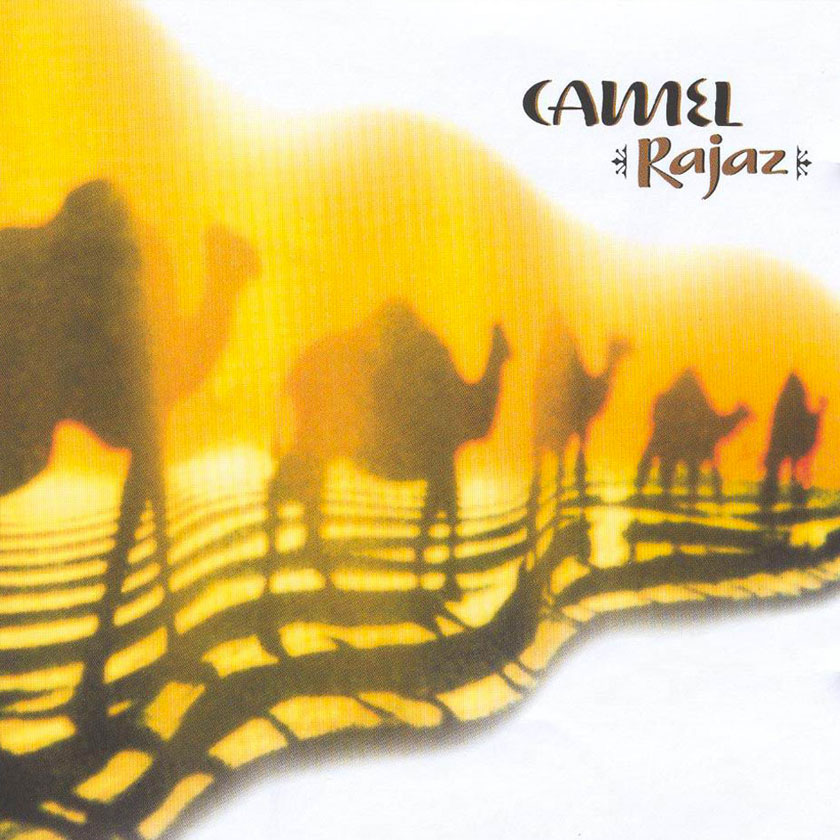Inspired by the death of frontman Andrew Latimer’s father and his Irish diaspora-related roots, Camel’s well-received 12th album, Harbour Of Tears, was later promoted by a full-scale tour, the itinerary including lengthy campaigns in Europe, North America, and Japan. Culled from one of the tour’s most memorable shows, at Billboard Live in LA (formerly venerable 60s Sunset Strip venue Gazzarri’s), the ensuing live double-CD, Coming Of Age, attracted further critical plaudits while the prog-rock stalwarts considered their next move: a typically questing effort that would close out the album, Rajaz.
As it turned out, Latimer’s first lieutenant, bassist Colin Bass, inadvertently inspired Camel’s next studio set. Aside from his four-string role with Latimer’s outfit, Bass had been a core figure in the pioneering, John Peel-endorsed world music act 3 Mustaphas 3 during the 80s, and he later become heavily involved in this rapidly developing scene, producing a variety of international acts and collaborating with Malian star Oumou Sangare.
Consequently, Bass gifted Latimer a copy of The Rough Guide To World Music, which immediately fascinated the guitarist. The section on Arabic music particularly caught Latimer’s eye and introduced him to a mysterious form of musical poetry called “Rajaz.” Loosely translating as a kind of spontaneous vocal composition, this music-related back to Arabian camel trains in ancient times, and was reputedly inspired by the simple meter of a camel’s footsteps.
His interest piqued, Latimer decided to dub his band’s next album Rajaz and wrote a series of compositions inspired by this ancient musical practice. What Camel later emerged with was still in keeping with the band’s customary prog-rock sound, yet to Latimer’s credit, most of the record’s best tracks also remained true to his original ideal.
“The Final Encore”’s undulating rhythm, for example, perfectly replicated a camel’s restless, yet steady motion, while the suitably Moorish-flavored “Sahara” held the listener hypnotized. Perhaps best of all, though, was the eight-minute title track: a restless, nomadic tour de force spiced up by cello, flute, and Latimer’s sidewinding slide guitar.
Elsewhere, the record referenced more familiar themes, at least sonically. The moody, questing “Lost And Found” could quite easily have fitted into the band’s Cold War-related epic Stationary Traveller, while on the swaying “Straight To My Heart” (“I still love the sound of that red guitar, it takes my breath away”), Latimer paid a heartfelt tribute to his favorite musical weapon of choice.
Released through the band’s own Camel Productions imprint on October 11, 1999, Rajaz was supported by a mammoth tour plagued by problems of epic, Spinal Tap-esque proportions. After successfully replacing departing drummer Dave Stewart with new long-term sticksman Denis Clement during rehearsals, the band was later hit with everything from manager/lyricist Susan Hoover’s serious horse-riding-related accident through to extreme flu viruses and Latimer losing his voice.
Yet Camel prevailed, taking it all in their stride. Indeed, throughout the year 2000, they played some of the most fiery shows of their career in sold-out theatres all over Europe, before returning refreshed to record 2002’s triumphant A Nod And A Wink.



